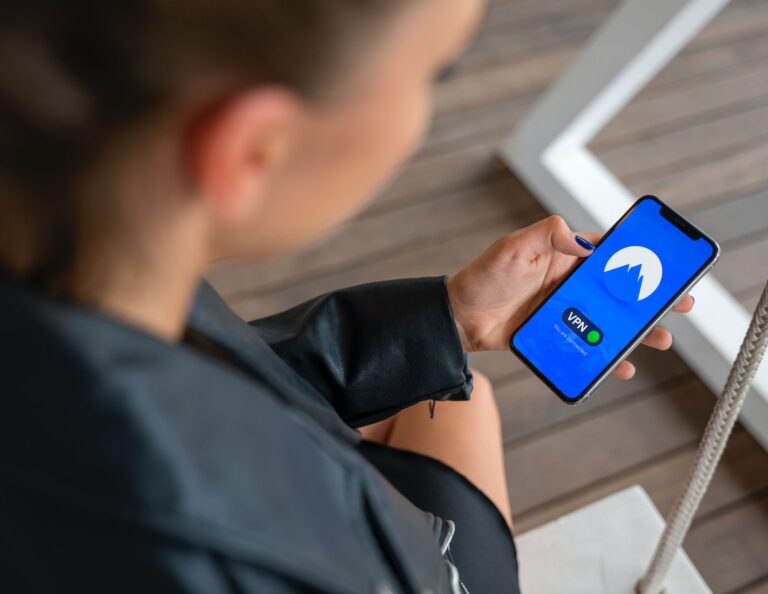You’ve worked hard to build your business from the ground up from developing proprietary methods, customizing standard operating procedures and perfecting the carefully curated content you’ve engineered over the years. But then one day you find out you’re getting ripped off by someone copying your work and you realize you’re losing money as a result. There’s got to be something you can do to protect yourself, right? That’s where a trademark comes in (along with its good friend, copyright).
A trademark has the power to protect your brand, establish your authority and save you dozens of legal headaches down the line. The best part? With a little help from your favorite artist turned attorney, you can do it yourself.
They say imitation is the most sincere form of flattery. But not when it comes to business — especially when there’s revenue on the line. As a board-certified attorney and professional photographer, my advice on this one is pretty straightforward. If there’s a chance your work will get ripped off by a competitor for profit, it’s worth protecting.
- You’ll want to start by trademarking the name and phrasing of your business that distinguishes you and your offerings from your competitors (Patagonia and Ben and Jerry’s, for example).
- Then, cover your bases by copyrighting your “artistic, literary or intellectually created works.” Online course material, photographs, music, paintings, books and so much more can fall into this category.
Even though this post dives deep into trademarking your work, it’s important to remember that the trademark and copyright work together to protect your content against those who would try to profit from it.
Trademark vs. Copyright: What’s the Difference?
Trademarks and copyrights are two varieties of an intellectual copy. Both are designed to protect your work from the dreaded copycats, but they don’t protect the same things. In a nutshell, here’s the difference:
A trademark will ensure you have exclusive rights to a distinguishing name or title. If it’s foundational to your brand identity, you’ll likely have the chance to trademark it. As long as you continue to use the name and title, your trademark will never expire. Score, right?
Copyright is what you’ll acquire to protect any original work that’s been created by that beautiful brain of yours: Think online course material, books, scripts, music, code and more.
Trademarks: What Sets Your Brand Apart?
You’ll want to trademark what instantly sets your brand apart in a crowded space. That means names, logos, designs, slogans, words or phrases that point to your brand in the marketplace. Once you register your trademark, it’ll appear in a national database that’ll prevent anyone else from laying claim to your name or other identifying elements.
Once you’re registered, it’s yours for life! You will also be empowered to pursue legal action against those who violate your trademark. This can include those who are attempting to use your protected name, imagery or wording (or anything close to it). The Coca-Cola brand name and identity is the textbook example for intellectual property that should be trademarked.
Can I Trademark My Work on My Own?
The short answer: yes!
It’s a fairly straightforward process to register your work with the government. It typically involves an online application, a small fee and some correspondence with the appropriate public offices. That said, you should know that it can be a complicated process and it is recommended that you seek an attorney to help you file your trademark application and handle whatever happens next.
At the end of the day, you won’t regret seeking out an attorney to assist with the filing of your trademark application. With the help of a professional, you’ll feel confident you’re following the correct steps to secure your trademark and you’ll save a lot of time and mental bandwidth. That’s valuable time that you can spend pouring into your business and focusing on what you do best.
Copyrighting: Protect Your Business on Broader Terms
As a business owner, there’s a lot of original content worth copyrighting, especially if you’re in the business of creating. You’ll want to copyright photographs, song lyrics, books, curriculums, scripts, paintings and anything else that’s “intellectually created,” as the US Patent and Trademark Office would put it.
Essentially, copyright gives you the exclusive right to share the work, sell the work and more. Here’s the best part: a copyright grants you the ability to take action against those who would try to reproduce your work and profit off of it without permission.
Pro Tip: It’s important to note that upon the creation of the work, the copyright is generated automatically. Because you created it, you are inherently the copyright owner.
What Happens if I Don’t Trademark or Copyright My Work?
In short, you’re leaving yourself vulnerable to the copycats who use your work for their own benefit. And take it from me, it’s much easier to be proactive than reactive when it comes to copycat situations. If you don’t take the time to protect your work, you’ll likely catch wind of someone out there who’s replicated your work without your knowledge and definitely without your consent. However you find out, it’s easy to feel helpless when you know you’re missing the legal protections that secure your work as truly yours.
The worst part is that someone out there is making money off of your ideas. That’s revenue that should be going into your pocket and isn’t. That’s not okay.
Once you’ve discovered the copycat, you’re faced with sending some awkward emails before things start to get serious. If you’ve ever had to send an email that starts with, “Hey! Sooo… I noticed that your new launch looks a lot like the offering I just rolled out last spring. What’s up with that?” then you know what I mean.
Once that email has been sent, it’s not always a guarantee that things will go your way. From there, you’re looking at expensive attorney consultation fees, cease and desist letters, potential mediation or litigation in the future. The work and expenses can start to pile up fast, so it’s best to protect yourself upfront, rather than deal with the clean-up after the fact.
As a busy Independent business owner, you’ve likely got a lot on your plate as it is and don’t want to be worrying about copycats. Luckily there are qualified legal experts out there (hi!) who can help you protect your business. As one of my tailor-made legal services, I will handle all the paperwork and red tape on your behalf so that you can stay focused on doing what you do best. Make your copyright protection and trademark application easy by trusting an accomplished attorney with the finer details. Visit theartistslawyer.com to inquire about availability and let’s get to work!
Ready to protect your business? Get our Protecting Your Business Ultimate Guide.



